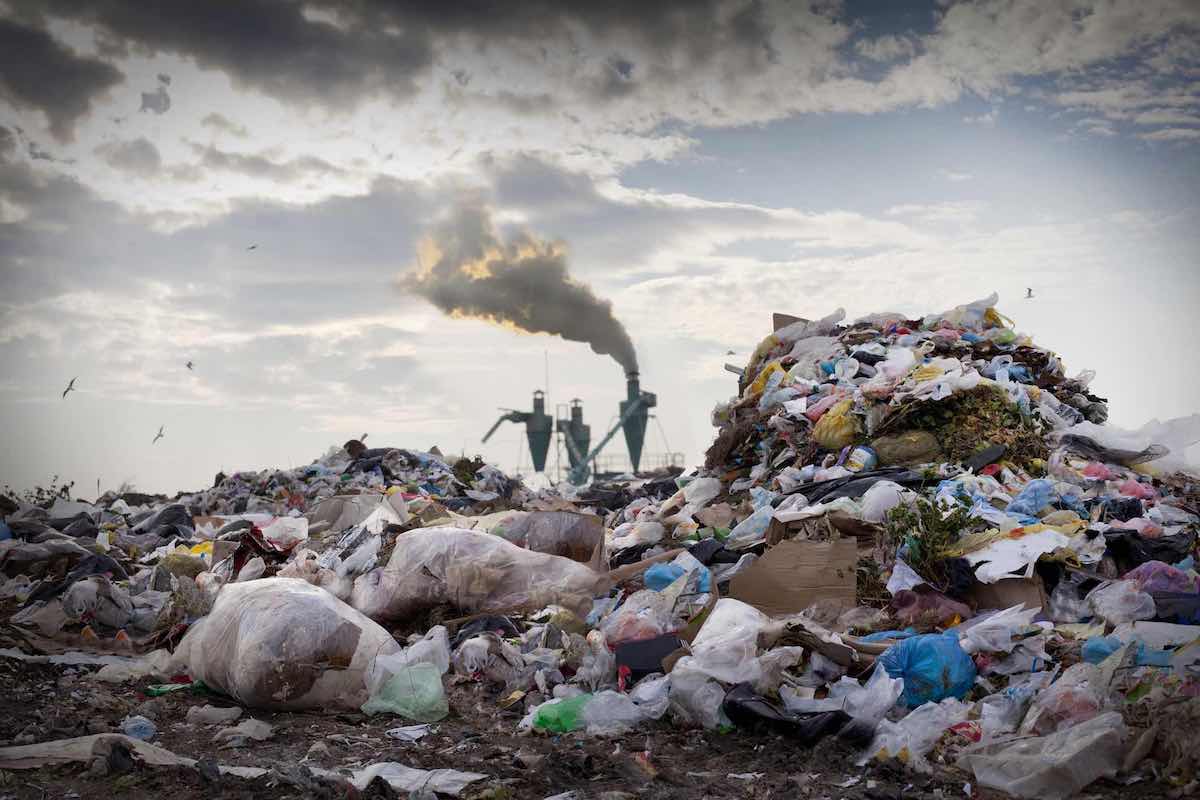
Human impact on the environment is a topic of increasing concern in today’s world. As the global population continues to grow, so does our impact on the natural world around us. From deforestation and pollution to climate change and species extinction, the consequences of our actions are becoming more evident with each passing day. In this article, we will explore 13 fascinating facts about human impact on the environment that shed light on the magnitude of the problem and the urgent need for sustainable solutions. From the astonishing amount of plastic waste in our oceans to the alarming rate of deforestation, each fact showcases the profound impact that human activities have on the delicate balance of nature. So, let’s delve deeper into these facts to better understand how our actions are shaping the world we live in.
Key Takeaways:
- Deforestation, plastic pollution, and air pollution are just a few ways humans impact the environment, affecting climate change and threatening marine life.
- Transitioning to renewable energy and adopting sustainable practices is crucial to combat climate change and protect the planet for future generations.
Deforestation is a major contributor to climate change.
Did you know that deforestation accounts for about 11% of global greenhouse gas emissions? The destruction of forests not only releases carbon dioxide into the atmosphere but also reduces the Earth’s capacity to absorb CO2.
The fashion industry is the second-largest polluter in the world.
It may come as a surprise, but the fashion industry is responsible for a staggering amount of pollution. From textile production to garment manufacturing and transportation, this industry leaves a significant carbon footprint.
Plastic pollution is threatening marine life.
Over 8 million tons of plastic end up in our oceans every year, endangering marine life. From plastic bags to microplastics, the impact of plastic pollution is devastating for ecosystems and the creatures that depend on them.
Air pollution contributes to millions of premature deaths annually.
Poor air quality is not just an inconvenience; it is a severe health hazard. According to the World Health Organization, air pollution leads to millions of premature deaths worldwide, primarily due to respiratory diseases.
Human activities are causing the sixth mass extinction.
We are currently experiencing the sixth mass extinction event in Earth’s history, primarily caused by human activities such as habitat destruction, pollution, and climate change. This loss of biodiversity has dire consequences for ecosystems and the planet as a whole.
Industrial agriculture is a major contributor to water pollution.
The extensive use of fertilizers and pesticides in industrial agriculture leads to water pollution. These chemicals contaminate rivers, lakes, and groundwater, posing a threat to aquatic life and human health.
Urbanization is destroying natural habitats.
The rapid expansion of cities and urban areas is resulting in the destruction of natural habitats. As human settlements encroach upon forests and wetlands, many species lose their homes and struggle to survive.
The meat industry is a significant source of greenhouse gas emissions.
Animal agriculture, particularly the production of meat and dairy, is responsible for a significant portion of global greenhouse gas emissions. This industry contributes to deforestation, water pollution, and methane emissions from livestock.
Climate change is intensifying natural disasters.
As the Earth’s climate continues to change, we are witnessing an increase in the frequency and severity of natural disasters. Heatwaves, hurricanes, droughts, and floods are becoming more frequent and destructive, affecting millions of people around the world.
E-waste poses a significant environmental threat.
With the rapid advancement of technology, electronic waste has become a pressing issue. Improper disposal of electronic devices leads to the release of toxic substances into the environment, posing risks to human health and ecosystems.
Overfishing is depleting marine resources.
Overfishing, driven by unsustainable fishing practices and high demand for seafood, is depleting our oceans’ fish populations. This not only disrupts marine ecosystems but also threatens the livelihoods of millions who depend on fish for food and income.
Water scarcity affects billions of people worldwide.
Despite the abundance of water on Earth, millions of people still lack access to clean water. Poor water management, pollution, and climate change all contribute to water scarcity, which has significant social, economic, and environmental implications.
Renewable energy is a key solution to combat climate change.
Transitioning to renewable energy sources such as solar, wind, and hydropower is critical in combating climate change. Not only do renewables reduce greenhouse gas emissions, but they also promote sustainable and cleaner energy production.
The 13 Fascinating Facts About Human Impact On The Environment remind us of the urgent need to take action. It is essential for individuals, governments, and industries to come together and adopt sustainable practices that protect our planet for future generations.
Conclusion
In conclusion, the human impact on the environment is a topic that cannot be ignored. From deforestation to pollution, our actions have significant consequences for the planet. However, it is not all doom and gloom. People now have more awareness about the importance of protecting the environment and are taking steps to minimize their footprint.
By adopting sustainable practices, such as reducing waste, conserving energy, and supporting environmentally-friendly businesses, we can all contribute to a healthier and more sustainable future. It’s crucial that we continue to educate ourselves and others about the impact our choices have on the world around us.
Ultimately, the fate of our environment lies in our hands. With concerted efforts and collective action, we can strive for a harmonious coexistence with nature and preserve our planet for generations to come.
FAQs
Q: What are the major human activities that contribute to environmental degradation?
A: Some major human activities that contribute to environmental degradation include deforestation, industrial pollution, overconsumption of resources, and the burning of fossil fuels.
Q: How does deforestation affect the environment?
A: Deforestation leads to habitat loss, soil erosion, disruption of ecosystems, and contributes to climate change by reducing the number of trees that absorb carbon dioxide from the atmosphere.
Q: Is climate change solely caused by human activities?
A: While natural factors can influence the climate, the current trend of climate change is largely attributed to human activities, particularly the burning of fossil fuels, deforestation, and industrial processes that release greenhouse gases into the atmosphere.
Q: What can individuals do to reduce their impact on the environment?
A: Individuals can reduce their impact on the environment by practicing energy conservation, recycling, minimizing waste, using eco-friendly transportation, supporting sustainable businesses, and advocating for policy changes that prioritize environmental protection.
Q: How does pollution affect ecosystems?
A: Pollution can contaminate air, water, and soil, which can have detrimental effects on ecosystems. It can lead to the decline or extinction of certain species, disruption of food chains, and the degradation of habitats.
Was this page helpful?
Our commitment to delivering trustworthy and engaging content is at the heart of what we do. Each fact on our site is contributed by real users like you, bringing a wealth of diverse insights and information. To ensure the highest standards of accuracy and reliability, our dedicated editors meticulously review each submission. This process guarantees that the facts we share are not only fascinating but also credible. Trust in our commitment to quality and authenticity as you explore and learn with us.


